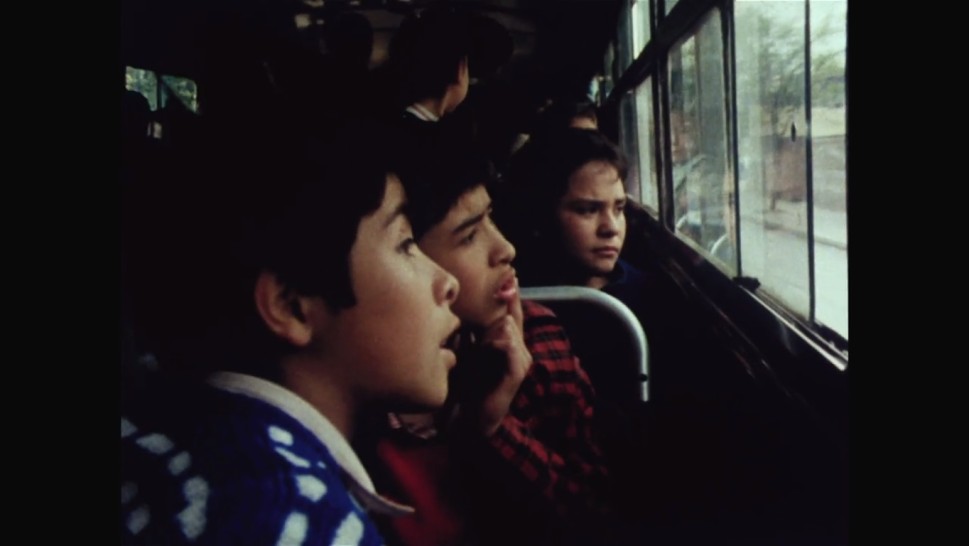
One Hundred Children Waiting for a Train
(Cien niños esperando un tren)
$15 Special Event Tickets
Chile/UK, 1988, DCP, color and b&w, 55 min.
Spanish with English subtitles.
DCP source: Filmmaker
Agüero’s remarkable documentary begins as a tender portrait of influential film historian, educator and activist Alicia Vega (b.1931) teaching a workshop on early film history to impoverished youth living on the outskirts of Santiago. Gradually the film transforms into a devastating critique of the Pinochet regime by shifting focus to Vega’s young students and their families, whose cramped quarters Agüero visits in touching scenes that reveal his compassionate understanding of a home as poignant expression of its denizen’s aspirations and vulnerabilities. Censors struggled to explain why they absurdly restricted the film to viewers over the age of twenty-one. For to do so would have been to recognize precisely what Agüero’s film and Vega’s workshop clearly, courageously expose: the deliberate stratification of class through poverty and lack of education cruelly imposed by the dictatorship. Yet with One Hundred Children Waiting for a Train, Agüero also offers cinema—both his own and the “films” and “cameras” made of paper and glue by the children—as a means to attain the knowledge and perspective that can lead to a freedom otherwise unavailable.
PRECEDED BY
-
To Not Forget (No olvidar)
Directed by Ignacio Agüero.
Chile, 1982, DCP, color, 30 min.
Spanish with English subtitles.
DCP source: Filmmaker
An austere and important example of testimonial cinema, No olvidar gives voice and dignity to the women of the Maureira family as they recount their long struggle to understand the fate of a group of men—including five from their family—captured by military police days after the 1973 coup. Devoid of any sensationalism or narrative intervention, No olvidar instead patiently allows the women to tell of their six-year search and quiet defiance of authorities who denied and even mocked the fate of their kinfolk who, we quickly learn, were tortured and killed in the most horrific fashion in an abandoned mine. Agüero’s powerful short film, which he signed as Pedro Meneses for safety reasons, became a tragic monument and historic act of resistance by making available for the first time testimony that indicted, with irrefutable clarity and power, the criminal actions of the Pinochet dictatorship that until then had been obfuscated or outright denied in official media channels. Even though the government sought to erase the evidence by dynamiting the mine where the murders took place, Agüero refused to allow this heinous crime to be erased or denied in tribute to the extraordinary strength and dignity of the Maureira women in their pursuit not of vengeance but of justice



















